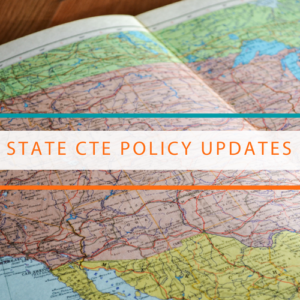 As the legislative sessions move forward, states have passed laws to examine and increase work-based learning opportunities for learners.
As the legislative sessions move forward, states have passed laws to examine and increase work-based learning opportunities for learners.
Some states, such as New Jersey, plan to launch pilot programs to expand access to work-based learning opportunities. In New Jersey, the state legislature passed S3065 in January to direct the Commissioner of Education to establish a three-year youth apprenticeship pilot program. The program will allow high school and college students to develop critical employability skills while earning a high school diploma or postsecondary credential. Employers participating in the program must pay the apprentice and offer an industry-recognized credential upon the completion of the program.
Other states are leveraging graduation requirements to incentivize work-based learning opportunities for students. In Virginia, Governor Ralph Northam signed HB516 into law in March. The law requires the Virginia Board of Education to include options for students to complete a high-quality work-based learning opportunity or a dual enrollment course in its high school graduation requirements.
In Tennessee, Governor Bill Lee signed HB736 into law in March to examine opportunities available to learners. The law requires the Office of Research and Education Accountability (OREA) to study and report on whether community schools are providing on-the-job training opportunities to learners by working with community partners or businesses. Specifically, the law directs OREA to examine the number of learners participating in on-the-job training opportunities provided by community schools and whether these opportunities have resulted in students obtaining employment after high school.
Brianna McCain, Policy Associate
Tags: graduation requirements, New Jersey, tennessee, Virginia, work-based learning

